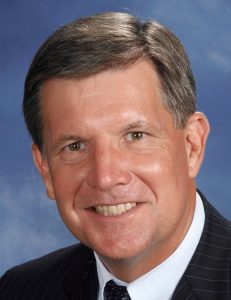In a world that is increasingly divided, followers of Jesus can be proactive and intentional about building bridges over the chasm of our differences. Our faith calls us to be peacemakers, to love our neighbors and to cultivate unity in our churches and communities.
The Greek philosopher Aesop was the first of many to assert, “United we stand, divided we fall.”

Barry Howard
Divisiveness seems to be the primary tool in the arsenal of the adversary. A sports team that is divided seldom wins. A nation that is divided internally is at risk of falling prey to its external enemies. A church that is divided diminishes its effectiveness.
How can we bridge the cultural, spiritual and political rifts that divide us? Here are a few ways we can foster understanding and harmony within our churches and communities:
Listen actively and attentively. Listening is a powerful act of love. By listening carefully to each other’s stories, we gain insight into different thoughts and experiences that have shaped the other person’s perspective. This requires us to listen without interrupting or preparing a clever retort. It means we listen to learn and to seek a better understanding of their viewpoint. Empathetic listening can dissolve barriers and foster deeper connections.
“Empathetic listening can dissolve barriers and foster deeper connections.”
Respect diversity. Our differences are not just to be tolerated but respected. Each person brings unique gifts and perspectives that enrich our community. Treasure the diverse backgrounds, cultures and viewpoints within our church, recognizing that diversity reflects the beautiful tapestry of God’s creation. My longtime friend and neighbor, Dow Birkhimer, a retired lieutenant colonel, often said to me, “If you and I agree on everything, one of us is not needed.”
Engage in open and honest conversations. Creating a safe space for open dialogue is essential. Encouraging honest discussions about our differences, whether they be cultural, theological or personal, allows us to address misunderstandings and misconceptions. Unity of spirit does not require uniform agreement on every issue. Approach these conversations with an open mind, a spirit of humility and a willingness to learn.
Look for common ground. While differences sometimes can be front page news, it is helpful to focus on the common ground we share. Our faith in Jesus Christ, our commitment to love and serve others and our commitment to work for the common good are powerful unifying factors. Focusing on these shared values can strengthen our bonds.
Practice grace and forgiveness. We all make mistakes and sometimes say or do things that hurt others. Practicing forgiveness and extending grace are crucial in maintaining unity. Be quick to forgive and generous with grace, reflecting the love Jesus has demonstrated for us.
Serve together. Working side by side in service to others can break down walls and build bridges. Whether it is through local outreach programs, mission trips or community projects, serving together helps us see beyond our differences and unite in our common goal of spreading God’s love. When we serve together, our souls tend to bond, enabling us to trust each other’s motives, even when we think differently about many issues.
Pray for unity. Prayer is a powerful force in bridging divides. Commit to praying for unity within your church and beyond. Ephesians 4:3 urges us to “Make every effort to keep the unity of the Spirit through the bond of peace.” Pray for God to soften hearts, open minds and guide us in building relationships that are seasoned with grace and love.
“Divisiveness is a tool of the enemy, not a fruit of the Spirit.”
Divisiveness is a tool of the enemy, not a fruit of the Spirit. As we become rooted and grounded in our faith, we are not an easy target for the tempter’s snare.
In John 17:21, Jesus prayed “that all of them may be one, Father, just as you are in me and I am in you. May they also be in us so that the world may believe that you have sent me.”
Jimmy Carter hit the nail on the head when he said, “The bond of our common humanity is stronger than the divisiveness of our fears and prejudices.”
In our attitudes and actions, we are either building bridges or driving wedges. Don’t join the demolition crew. Build more bridges.
Barry Howard serves as pastor of the Church at Wieuca in North Atlanta. He also serves as a leadership coach and columnist with the Center for Healthy Churches. Follow him on X at @BarrysNotes.


